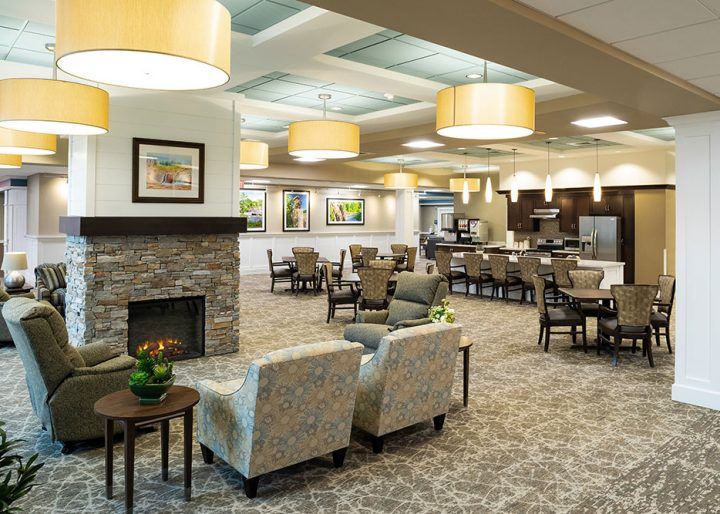Compare the top Assisted Living homes in your area today.
Compare the top Assisted Living homes in your area today.
Blog Article
Recognizing Exactly How Assisted Living Sustains Individuals With Mental Deterioration Care Demands
Assisted living centers are increasingly acknowledged for their crucial role in resolving the complex care requirements of people with dementia. Assisted Living. By using an organized yet supporting environment, these facilities not just advertise safety and security and health however additionally cultivate a feeling of autonomy through personalized treatment strategies. Additionally, involving tasks and socializing possibilities are integral to enhancing cognitive function and emotional health and wellness. The nuances of just how these components engage to produce a helpful community warrant closer examination, especially in recognizing their lasting effect on citizens' high quality of life.
Introduction of Dementia Care
Mental deterioration care is progressively crucial as the occurrence of dementia-related problems rises amongst maturing populaces. The condition can differ dramatically in its presentation, calling for customized care approaches to fulfill private demands.
Reliable mental deterioration treatment entails a multidisciplinary method, integrating clinical, emotional, and social assistance. Healthcare professionals, caregivers, and household participants need to collaborate to create a nurturing atmosphere that advertises the well-being of individuals with mental deterioration. Key components of mental deterioration treatment include individualized treatment plans, cognitive excitement treatments, and behavioral interventions aimed at enhancing quality of life.
Additionally, it is necessary to identify the psychological and mental difficulties faced by both patients and caregivers. Education and learning and training for caretakers play an essential function in promoting understanding and empathy, thereby improving interactions with those influenced by dementia. As the need for mental deterioration care continues to rise, the focus needs to continue to be on delivering caring, person-centered treatment that appreciates the dignity and choices of individuals dealing with this condition.
(Memory Care Charlotte)
Role of Assisted Living Facilities
Aided living centers play a crucial duty in offering take care of people with mental deterioration, using a helpful atmosphere that balances independence with the required assistance. These facilities are designed to accommodate the one-of-a-kind demands of citizens, promoting a sense of community while guaranteeing safety and well-being.
In an assisted living setting, experienced team member give 24/7 support, assisting with day-to-day tasks such as bathing, clothing, and medicine management. This degree of treatment is essential for individuals with mental deterioration, who may have problem with these jobs because of cognitive decline. Additionally, centers typically incorporate memory-enhancing programs and social tasks tailored to boost cognitive performance and encourage social communication.
The physical atmosphere of nursing home is additionally enhanced for safety, including safe and secure entryways, well-lit pathways, and clear signs to help homeowners navigate their environments. Moreover, these communities cultivate a sense of belonging, reducing the sensations of isolation that people with dementia may experience.
Personalized Treatment Plans
To make sure that each resident receives the most proper treatment, customized treatment strategies are vital in nursing home for people with dementia. These strategies are customized to meet the special demands, preferences, and challenges dealt with by each homeowner, advertising their dignity and lifestyle.
The growth of a personalized care plan commonly starts with an extensive evaluation carried out by medical care specialists. Memory Care. Continue This assessment evaluates the individual's cognitive capabilities, physical health and wellness, psychological well-being, and social preferences. Input from relative and the resident themselves is critical, as it offers beneficial understandings into their history, routines, and individual interests
Once the evaluation is full, a multidisciplinary group collaborates to create a care strategy that details details objectives and interventions. This may include drug management, daily living assistance, and behavioral strategies tailored to mitigate anxiety or frustration.
Routine testimonials and updates to the treatment plan ensure it remains pertinent as the person's problem evolves. Memory Care. By prioritizing customized treatment, assisted living centers can enhance the general well-being of citizens with dementia, promoting a setting that values their uniqueness while addressing their treatment requires successfully
Engaging Tasks and Socializing
Engaging activities and socializing play a crucial role in improving the high quality of life for citizens with dementia in nursing home. These tasks are developed to boost cognitive feature, promote psychological wellness, and foster connections amongst residents. Structured programs, such as art treatment, music sessions, and memory treatment, give possibilities for people to share themselves creatively while also activating positive memories.
Socializing is equally essential, as it combats feelings of seclusion and solitude that can come with dementia. Team activities, including video games, team getaways, and public eating, encourage communication and help homeowners build supportive relationships with peers and caregivers. This feeling of community not just improves their daily experiences yet also adds to a more steady psychological environment.
Moreover, involving activities can be tailored to private choices and cognitive levels, making sure that each citizen can get involved meaningfully. By creating an atmosphere that focuses on engagement and social interaction, helped living centers can considerably enhance homeowners' overall mental health and wellness, cultivating a feeling of purpose and belonging. Eventually, these campaigns are vital parts of extensive mental deterioration treatment, considerably influencing residents' overall health and happiness.
Advantages of Area Support

Furthermore, neighborhood assistance advertises social interaction, which is essential for cognitive and psychological health. Involving with peers and taking part in group tasks can enhance state of mind and motivate reminiscence, adding to a higher feeling of belonging. This social interaction is vital, as loneliness and isolation can aggravate cognitive decline.

(Memory Care Charlotte)
Final Thought
In conclusion, assisted living centers offer as essential settings for individuals with dementia, providing organized support that cultivates both self-reliance and safety. The application of customized treatment plans makes certain that each resident's unique needs are fulfilled, while involving activities promote social communication and cognitive engagement.
Report this page